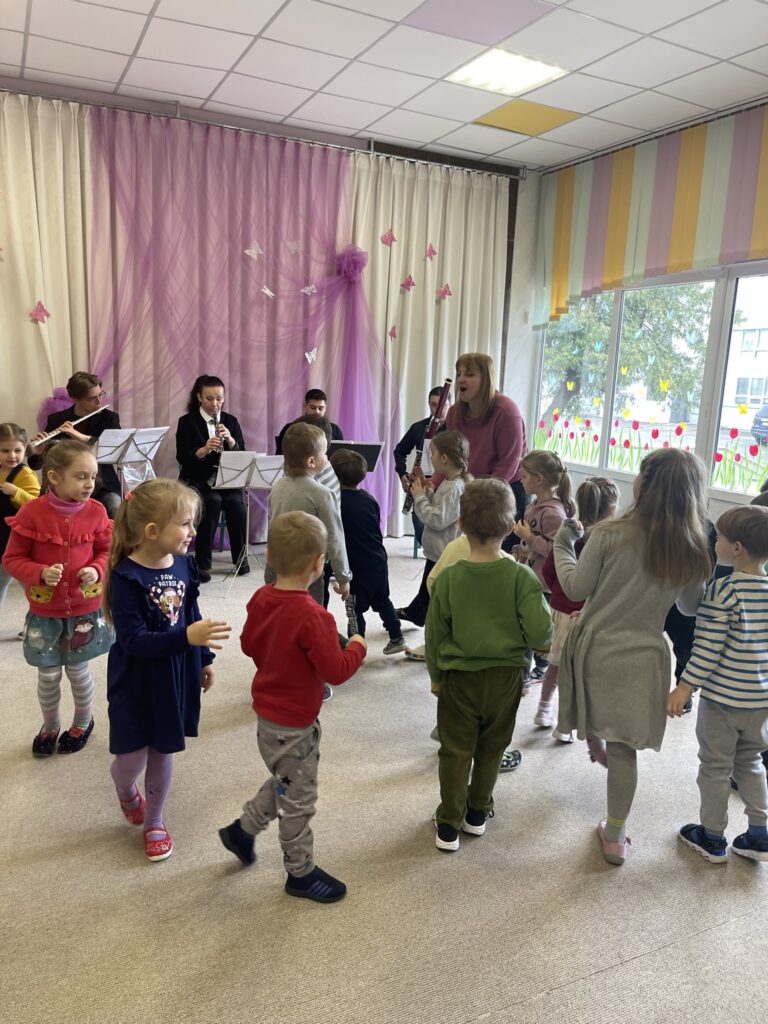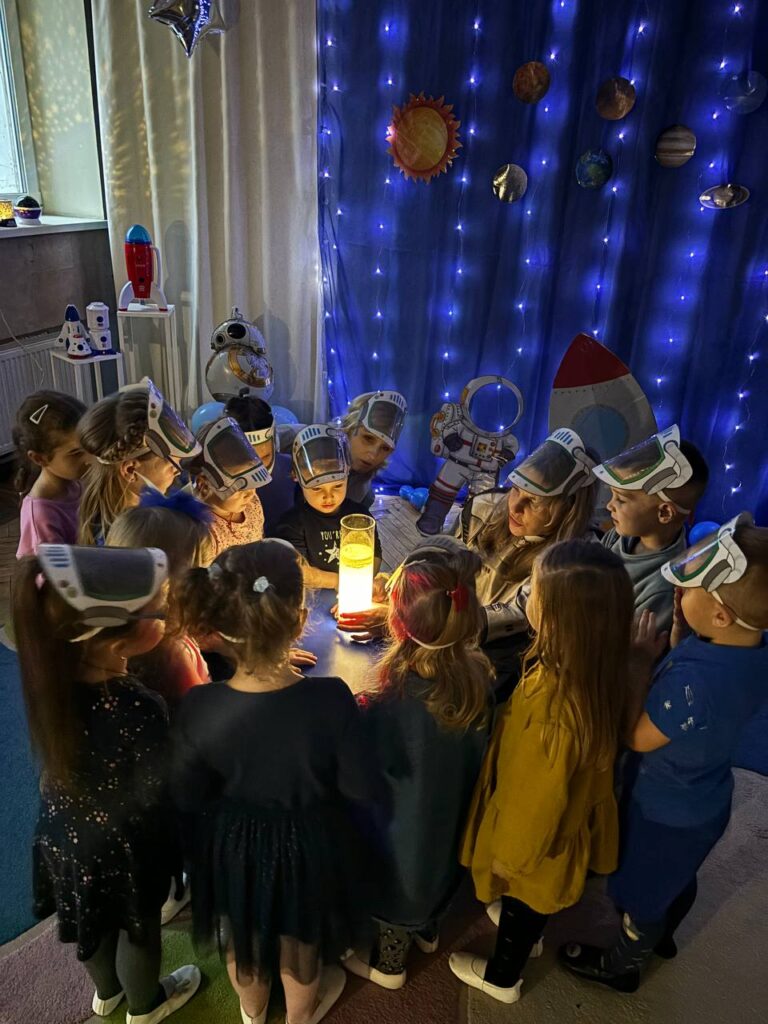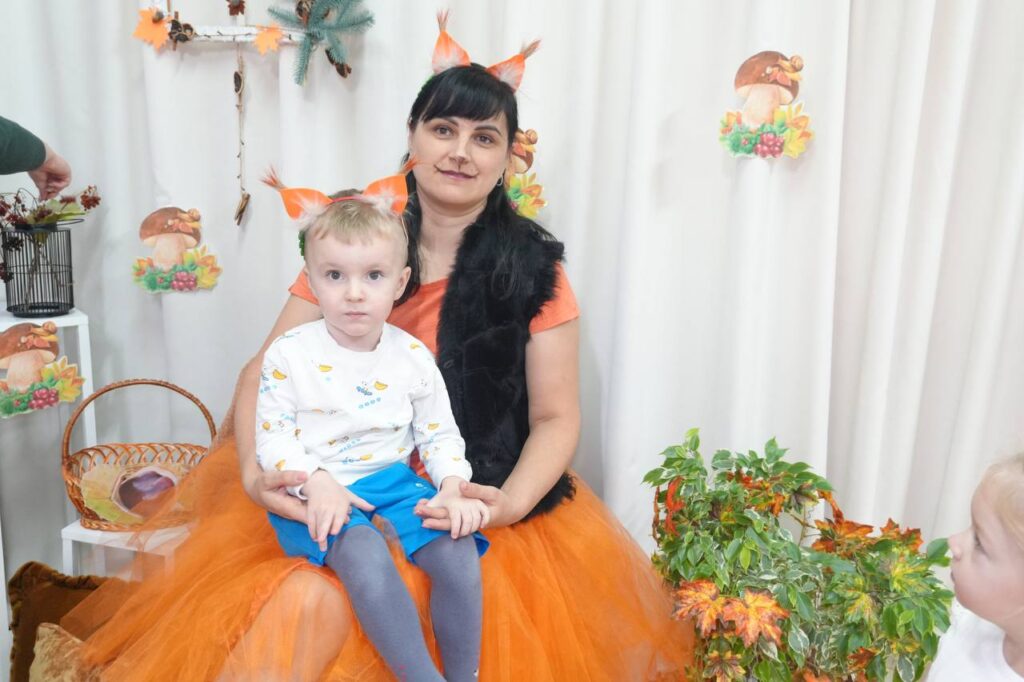- Content
Preschool children are the most vulnerable to changes in the environment, and war is a challenge that affects not only adults but also the youngest ones. They may not fully understand what is happening, but they can feel their parents’ emotional state, react to the new reality, and need special support. How to help kids adapt to stressful conditions and maintain psychological balance?
Types of games and creative activities that can help children adapt to stressful conditions

For a child, play is a way to learn about the world and experience emotions. In times of crisis, it becomes not just entertainment, but a way of adaptation and emotional relief.
One of the best methods of support is role-playing games, where a child can invent his or her own world and control events. For example, the game “doctor and patient” or “fireman saves the city” helps to restore a sense of security and faith in goodness.
Creativity is also a powerful tool to combat stress. Drawing, sculpting, and appliqués help children express their emotions without words. If a child draws dark or aggressive pictures, you should support them and give them the opportunity to express their fears and then draw something light together that is associated with safety.

Moving games and physical activity can help relieve tension. Dancing, playing catch, tug-of-war, or simply jumping on a trampoline all contribute to the production of endorphins, which reduce stress levels.
Reading fairy tales with a positive ending can also calm your child down. Especially useful will be stories in which characters overcome difficulties and find a way out of difficult situations.
The impact of war on the physiological and psychological development of preschool children

War changes children’s sense of stability, disrupts their usual rhythm of life and provokes anxiety. Kids can become more tearful, irritable or, on the contrary, withdrawn. The loss of a sense of security is often manifested in behavioral changes: sleep disturbances, refusal to eat, returning to habits that have already disappeared (for example, thumb sucking or unwillingness to sleep without their mother).
Physiologically, prolonged stress can cause headaches, digestive problems, and a weakened immune system. Children who are under constant stress may get sick more often or complain of abdominal or heart pain for no apparent reason.
To reduce the negative impact, it is important to restore at least some stability for the child – the usual daily schedule, bedtime rituals, favorite games. You should not hide the truth, but you need to present it in an accessible form, explaining that what is important now is safety and that the child is not alone in this situation.
Communication with other children helps to maintain psychological balance

A child is a social being, and it is important for him or her to feel part of a group. Communication with other kids helps to distract them, restore a sense of normalcy, and simply feel the joy of play.
Even if the family has been forced to move and the child has lost their friends, it is important to help them find new ones. You can attend group classes, hobby groups, sports clubs, or just walk on playgrounds where the child can interact with peers.
Joint family games are also useful — board games, construction sets, acting out stories. This not only brings the family closer together but also gives the child the feeling that he or she is not alone, that together they can overcome any difficulties.

Thus, during the war, children, like adults, experience enormous stress. However, the right support, stability in the little things, and the opportunity to express their emotions through play and creativity will help them adapt. It is important for parents to be there for their children, to talk to them, to give them the opportunity to communicate with friends and to bring joy back into their lives.
If you are looking for a space where your child will receive care, attention and support in a difficult time, My Horizons is ready to help. We invite you to learn more about our programs and get acquainted with our facility.
To reduce the negative impact, it is important to restore at least some stability for the child - the usual daily schedule, bedtime rituals, favorite games.